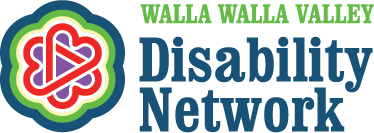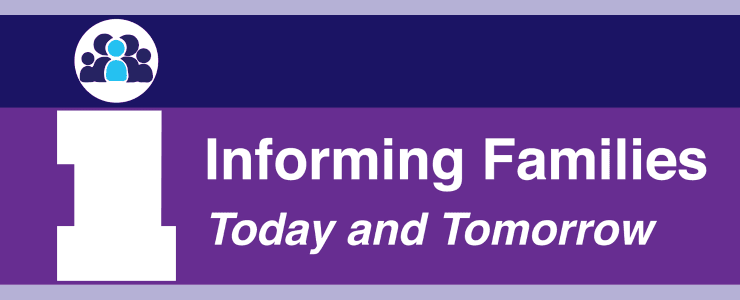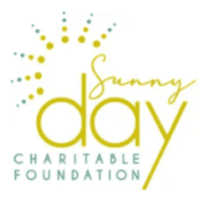General Information
Early Education
-
Our Vision is a community devoted to the wellbeing of young children and families.
-
Explore programs offered like Parent Toddler Class, Parent Cooperative Preschool, and Tot Spot.
IEPs (Individual Education Programs)
-
Where No One Has to IEP Alone. They say it takes a village. You found yours. Everything you ever wanted to know about IEPs.
-
Guidance from the Washington Office of the Superintendent of Public Instruction (OSPI)
-
As the expert on your child, you, the parent, have valuable information to share with the people who will interact with your child during the school day. Because time is often in short supply for both you and school personnel, it is important to find a way to deliver information quickly and concisely. This can help.
-
Strategies When You Disagree with the IEP Team: How to Document Concerns, Record Meetings, and Use Letters and Emails to Clarify Your Position from Wrightslaw.com
-
The HSBP (High School & Beyond Plan) is used to guide your high school experience and prepare you for postsecondary education or training and/or a career.
Inclusion / Disability Awareness
-
An inclusive education channel supporting the teaching and learning for ALL students. In this short introduction video, you will learn about the structure of the project and some of the big ideas! Videos won’t be longer than FIVE MINUTES - because let’s be honest, as teachers, we don’t have a lot of time!
-
A must read by Courtney Criss, Independent Living Coordinator at the ARC of Snohomish County
-
Special education has its fair share of myths and facts about inclusion for students with significant cognitive disabilities. This resource was developed to challenge those myths and highlight the facts of why inclusionary practices work for each and every student.
-
There are many myths about including students with the most significant cognitive disabilities in general education classrooms. This Brief debunks six of them.
-
Presented by Shelley Moore and Katie Novak, this webinar will discuss strategies and vision for a newly designed inclusive and equitable system. Every time Katie zooms out, Shelley will zoom in with a specific story about what this looks, sounds, and feels like for an individual student. Shelley will also share stories that help us imagine the impacts of this system on individual students and families supported by this work.
-
Explore the seed packet metaphor with Katie & Shelley. What conditions does your child need to grow and flourish? How can this be accomplished?
-
This is the final part of the 3-part series. Katie & Shelley discuss goals, activities, learning standards and more.
-
In 2008, Washington state legislature passed a law declaring October as Disability History Month. This project is titled "One Out of Five: Disability History and Pride" because 1 out of 5 people in the United States has a disability, and this resource is designed to celebrate the history and identities within this large and diverse community. "One Out of Five" is designed for ELA classes, but can be modified for grade levels or subject areas. The lessons are designed to be taught in order, but also function as stand-alone lessons and/or activities. Lessons are broken into 5 - 15 min components, and can be used to introduce ideas and vocabulary words on a limited time schedule.
-
As classrooms become more inclusive, it's important for every child to be welcomed and treated with respect. The goal of this resource center is to provide teachers with lesson plan ideas that will help students better understand what it's like to live with different disabilities.
-
See what successful inclusive education looks like.
-
Autism
-
This guide discusses issues surrounding the education of students on the autism spectrum, including the rights and responsibilities of parties involved, plus governing laws, programs, and additional resources.
-
This approach asserts that by integrating children with ASD with their typically developing peers, they can practice and develop social skills in a natural setting.
-
Find activities and resources to help build awareness and skills in managing emotions, setting goals, establishing relationships, and making responsible decisions that support success in school and in life.
-
The TEACCH method is a structured form of teaching that focuses on the child’s development needs, interests, and his/her skills to develop the child’s autonomy.
-
Miscellaneous
-
Learn from special guests on a variety of educational topics.
-
Designing systems to give every learner what they need, when they need it.
-
Whose Future Is It Anyway? helps prepare students for their IEP meetings and gain self-determination skills through six sections that contain 36 lesson sessions.
-
Four main categories: apps for dyslexic learners, apps for autistic learners, apps for the visually impaired and apps for learners with writing difficulties.
-
STRIVE WorldWIDE is a first-of-its kind online program to teach independent living skills to individuals with intellectual and developmental disabilities. For ages 16+
-
I am currently a full-time curriculum designer, creating educational resources for special educators, interventionists, behavior specialists, regular educators, parents, and other support professionals. I have a particular interest and strength with social emotional learning, behavior management, coping strategies, mindfulness, social skills, autism, executive functioning, and study skills.
-
The bell ringers focus on the areas of self-awareness, disability awareness, goal setting, and students gaining the knowledge to lead their IEPs. There are two versions of the bell ringers, one for secondary students and one for elementary age students or secondary students working on alternate achievement standards.
-
15 nonprofits came together to help the millions of parents whose children, ages 3–20, are struggling with learning and attention issues.
Washington Resources
-
We walk beside you to provide information, resources, training, inclusive events, community referrals, support groups and person centered plans.
-
OEO (Office of Education Ombuds) works with families, communities, and schools to navigate educational challenges and increase collaborative problem-solving so that every student can fully participate in and benefit from public K-12 education in Washington.
Public School Districts
Oregon Resources
-
Regional Programs provide services to children ages birth to 21 who have low incidence/high needs disabilities.
What is After High School for Students with Disabilities?
-
Preparing for a job, getting a job and keeping it, and managing finances.
-
Includes preference indicators, presentations, and handouts for educators, professionals, family members, and individuals with disabilities.
-
Students with disabilities today have access to more opportunities than ever before.
-
College students with disabilities have rights that allow for specific accommodations to help them succeed in school. Learn about legal protections, scholarships, technologies, and other assistance available to students with disabilities.
-
Making the transition from high school to college is a huge rite of passage for any student. It can be an especially steep slope to climb for college students who have learning differences or disabilities. But yes, students will disabilities can go to college and even make it to the top of their class.
-
Occupational & Life Skills (OLS) Bellevue College is an accredited associate degree program for adults with learning disabilities. In our uniquely supportive program, students learn to identify and develop a career pathway, grow interpersonal skills, build life-long friendships, and gain marketable, workplace-ready skills.
-
PACE courses are exclusively for our students. We cover a variety of topics, including Career Preparation, Communication, English, Health & Wellness, Humanities, Life Skills, and STEM (Science, Technology, Engineering, and Math). Our classes focus on covering basic concepts and are adapted to meet our students’ educational needs.
-
WWCC is committed to provide access and promote an atmosphere conducive to academic success for all who can benefit from post-secondary education. This includes providing accommodations to WWCC students with disabilities who are otherwise qualified to enroll in courses.
-
This 2 year college program at Washington State University in Pullman, WA is for individuals between the ages of 18 and 29.
College Programs For Those Interested in Disability Services
-
One fifth of the population is affected by disability and our laws protect their rights to live independently. Accessibility Studies brings value to most every career path—from business to social services. Earn your certificate or minor in Accessibility Studies and make a difference in your career and in the lives of others!
-
This campus-based program, open to both men and women, will prepare you to respond to the critical needs for understanding and responding meaningfully to autism and people with autism.
-
The UW LEND is a graduate level interdisciplinary training program. We prepare graduate students, post-graduate trainees, and mid-career health professionals to: Assume leadership roles in their respective fields, Provide high level interdisciplinary clinical care for children with neurodevelopmental disabilities and their families, Become strong advocates for policies to optimize the life course of individuals with neurodevelomental disabilties, and Meet the UW LEND Leadership Competencies.








